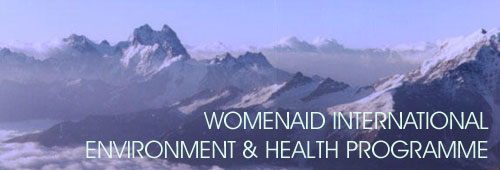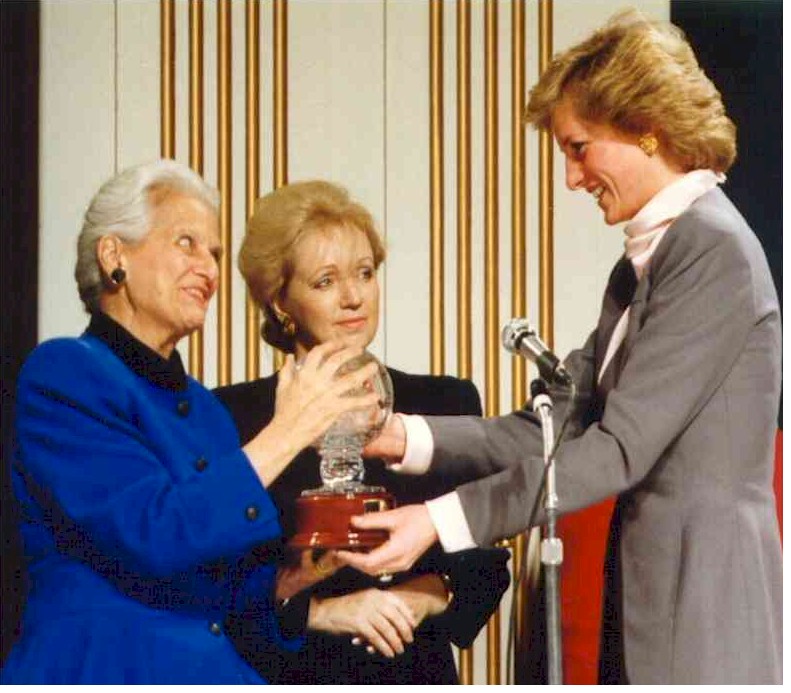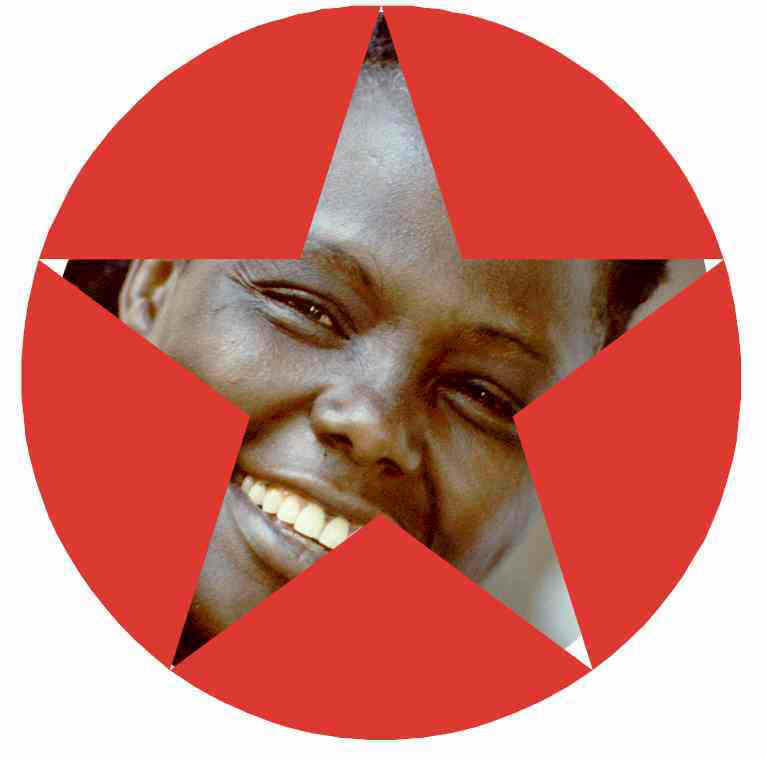 DEVELOPING THE NEHAP FOR GEORGIA
DEVELOPING THE NEHAP FOR GEORGIA
NATIONAL ENVIRONMENTAL HEALTH ACTION PLANS (NEHAPs) are the methods by which nations independently implement the statutes of the Aarhus Convention, a regional framework for strengthening public rights of access to information, decision-making, and justice in the context of environmental concerns. NEHAPs collectively comprise a strategy to prevent environmental health hazards in Europe. Each country writes its own plan with its own set of priority actions. Through their plans, European countries are bringing to life the Environmental Health Action Plan for Europe that they endorsed at the European Conference on Environment and Health in June 1994 in Helsinki. With this stamp of approval, the countries made the NEHAPs a top priority for action.
Public participation and access to information are increasingly recognized as essential elements in making the necessary transition towards environmentally sound, health-enhancing and sustainable forms of development. Effective communications with the public and active dissemination of information are essential elements in the development and implementation of environment and health [EH] policies. The creation of a NEHAP is crucial to the development of a democratic society that has a voice in the important issues that affect everyday life. The public and NGOs can be an important driving force for NEHAP implementation. They should help identify priority concerns and press for solutions, promote integrated solutions to problems and play a role in monitoring progress towards the goals set.
Under the Aarhus Convention, the Community and Member State institutions signed up to a series of commitments regarding improved transparency, access to environmental information, and public participation in environmental decision-making. With the aim of changing the behaviour of citizens, the 6th European Action Plan wanted to guarantee transparency and access to information, to organise debates in order to get feedback and to spread and distribute information.
THE NATIONAL ENVIRONMENTAL HEALTH ACTION PLAN (NEHAP) FORUM
Early in 2001 WomenAid contacted the Georgian national coordinator of the NEHAP and offered its assistance in the first phase of the project. This was accepted and WomenAid established the NEHAP FORUM to facilitate public participation in decision-making in environmental and health issues in Georgia. The Forum is supporting the development and implementation of the National Environmental Health Action Plan [NEHAP] process by facilitating comprehensive public input through public discussion and debate at the drafting stage. The NEHAP Forum [http://www.womenaid.org/environment/press/pbr7sep.html] gathered some 120 representatives of Georgian NGOs, environmental professionals and government representatives to introduce the international development of National Health & Environment Action Plan (NEHAP) strategies. The members of the Task Group for the drawing up of the Georgian draft NEHAP presented the Group’s approach. Subsequently the presentation at a national conference of the
Georgian Draft NATIONAL ENVIRONMENT & HEALTH ACTION PLAN (NEHAP). [http://www.womenaid.org/environment/press/prelease.html] was sponsored by WomenAid International and organized by its regional partner, WomenAid International-Caucasus.
A series of public consultations [http://www.womenaid.org/environment/press/agenda.html] on specific environmental issue areas were also organized to assist feedback to the National Environmental Health Action Plan task group prior to submission of the NEHAP to the Georgian parliament for approval. Well-informed citizens who are actively involved in environmental decision-making are a powerful new force in achieving results.
Pida Ripley, Founder WomenAid International with NEHAP FORUM participants
People are demanding a stronger voice in the decisions made at the community, regional, national and international level that affect our health and the quality of our environment. To be effective they need quality information that they can use and understand and they need the appropriate access to decision-makers to be able to express their views. It is hoped that the NEHAP Forum activities will pave the way for prompt citizen and governmental action on the most pressing of Georgia's environmental and health concerns.
DECREE 326 - PARLIAMENTARY APPROVAL
On 24 March 2003, the President of Georgia signed Decree N326 approving the NEHAP for Georgia. The NEHAP for Georgia was published by WomenAid online in both Georgian and English languages. It was distributed among local authorities of Georgia and became one of the basic documents for preliminary planning, actions and daily work of all related governmental structures determining environmental health policy in Georgia. Dr Misha Kurkhuli – head of the Georgian NEHAP working group stated: ‘‘The NEHAP should be a manual for Georgian policy makers, environmental health professionals and other specialists”. Dr Kurkhuli thanked WomenAid International for its support and for organizing the NEHAP Forum and its presentation and consultations that ensured wide public awareness about the issue.
Pida Ripley expressed pleasure that WomenAid International, through its Environment & Health Programme, had been able, once again, to fulfil one of its core missions - to act as a catalyst for legislative and public policy change.
ADDITIONAL REFERENCES:
http://www.womenaid.org/environment/press/prelease.html
http://www.womenaid.org/environment/press/consultpart.html
http://www.womenaid.org/environment/press/agenda6nov.html
WOMENAID ENVIRONMENTAL ACTION INCLUDES
WomenAid International (WAI) has a long history of environmental action and awareness campaigning - its ‘Mothers of the Earth’ environmental awareness campaign promoting the environmental work of women led to WomenAid International/Green Belt being awarded recognition in the 1987 UNEP Global 500 Awards. http://www.global500.org/index.php/thelaureates/online-directory/item/715-greenbelt-movement-womenaid-international
“It is so important to have groups like yours helping raise awareness of the need for integration of trees in the environment and of women’s current and potential role in resource management.”
C.H. Murray, Assistant Director-General, Forestry Department, UN Food & Agricultural Organization
WAI sponsored the environmental activities in the Caucasus of its regional partner organisation, WomenAid International Caucasus - WAI-C.
2000-2005: Caucasus Zone Green Campaign and promotion of the UN Environmental Programme (UNEP)
To introduce greater environmental awareness, engage civil society and ‘seed’ voluntary community action in Georgia, Armenia and Azerbaijan, in 2001 WAI-C created the highly successful, 5-year ‘Caucasus Zone Green’ - an annual month-long multimedia campaign held in June. By establishing an inter-regional Environment and Health Network Platform of government departments, UN agencies, INGOs and non-governmental organisations, together with multimedia partners, over 450 engaged parties promoted environmental issues and organised hundreds of media supported events at all levels, regional, national and inter-regional. In 2004 this high profile promotional and educational initiative was noted and promoted by the Aarhus Convention.
Partners: WAI, UNEP, WAI-Caucasus, media, relevant government ministries and UN country offices.
“Dear Mrs Ripley, I am pleased to inform you that the Aarhus Clearinghouse for Environmental Democracy is featuring the Green Belt Movement and the WomenAid International EHNP on the home page this month. The (WomenAid) Environment & Health Network Platform (EHNP) works to promote public awareness of environmental issues, increase public participation in environmental decision-making and strengthen the capacity of civil society organisations to advocate for and implement such programmes.”
Aarhus Convention Secretariat, UN Economic Commission of Europe, Geneva. 08.10.2004









